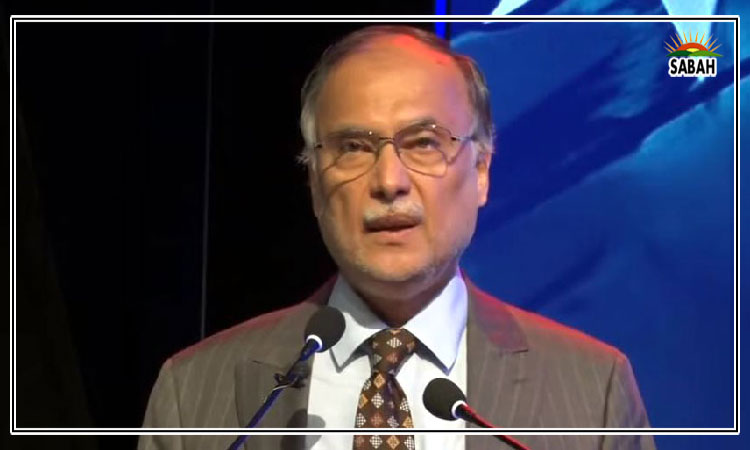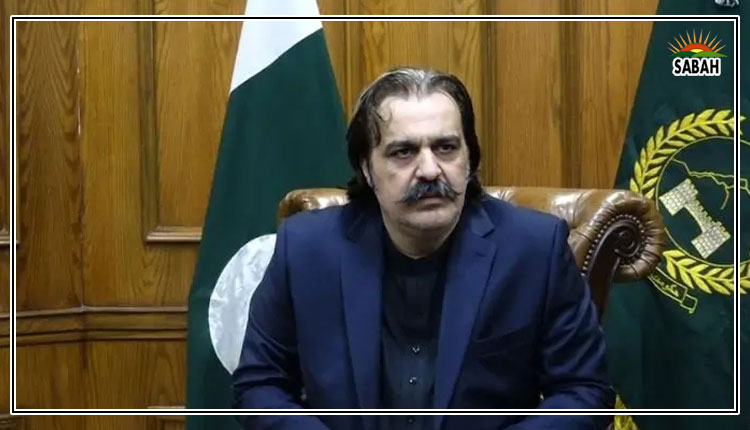Azm-e-Istehkam — a new pursuit for stability!… Durdana Najam
Pakistans recent launch of Operation Azm-e-Istehkam (Resolve for Stability) marks another chapter in its long fight against militancy and terrorism. Understanding this new operation requires a look back at the historical context.
The roots of Pakistans struggle with extremism stretch back to the 1980s with the Soviet invasion of Afghanistan. The influx of Afghan Mujahideen, some with radical ideologies, spilled into Pakistans border regions, creating fertile ground for groups like TTP.
Pakistans fight against terrorism is a complex and ongoing saga. Military operations like Zarb-e-Azb (2014-2016) and Radd-ul-Fasaad (2017) showcased the countrys evolving approach to this multifaceted challenge.
Zarb-e-Azb aimed to dismantle militant strongholds, particularly those of TTP, in North Waziristan bordering Afghanistan. While the operation achieved success by displacing militants and reducing terror attacks, critics argue it fell short in addressing the social and economic roots of extremism. Additionally, the displacement of a large number of civilians created humanitarian challenges.
Building on Zarb-e-Azbs gains, Radd-ul-Fasaad became a nationwide effort involving the military and various law enforcement agencies. This operation targeted residual militant activity, neutralised sleeper cells and bolstered border security. However, its effectiveness is debated due to limited transparency.
Pakistans most recent initiative, Azm-e-Istehkam, represents a strategic shift. This multi-domain approach combines military action to neutralise immediate threats with socioeconomic development initiatives to address the root causes of extremism in conflict zones. Law enforcement reforms and regional cooperation in countering cross-border threats are also central to Azm-e-Istehkams success.
Pakistans fight against terrorism isnt solely driven by military operations. The National Action Plan (NAP), launched in 2015, serves as the blueprint for a comprehensive counterterrorism strategy. Military operations like Zarb-e-Azb, Radd-ul-Fasaad, and Azm-e-Istehkam stem from this plan, with the crucial involvement of the Apex Committee.
NAP recognised that military action alone wouldnt suffice. It envisioned a multifaceted strategy encompassing crackdowns on militant financing and organisations, countering extremist narratives, law enforcement reforms and socioeconomic development initiatives to address the root causes of extremism.
NAPs implementation relies heavily on the Apex Committee. This high-powered body brings together civilian and military leadership at the national and provincial levels. The Apex Committee translates NAPs broad objectives into concrete action plans, assesses threats, identifies areas for intervention, coordinates resource deployment, authorises military operations and monitors their progress to ensure adherence to NAP principles.
Despite past efforts, Pakistans fight against terrorism is a constant struggle, and a significant challenge originating from across our eastern border. We face a brutal enemy in TTP which is responsible for the horrific bloodshed in Khyber-Pakhtunkhwa (K-P) and Balochistan provinces.
Pakistans perspective is clear: India fuels this fire by supporting and financing TTP. This alleged support takes multiple forms, weakening Pakistans security from within. Secondly, with the Taliban takeover of Afghanistan, India is exploiting its potential influence with the new regime to create safe havens for the TTP in Afghanistan, facilitating even more cross-border attacks. Thirdly, India has been exploiting Pakistans internal ethnic and sectarian fault lines. By stoking these divisions, India allegedly creates fertile ground for the TTPs extremist narrative, further destabilising Pakistan.
The recent surge in TTP violence in K-P and Balochistan only reinforces concerns about Indias alleged role. Pakistan has consistently called upon the world community to urge India to cease its support for TTP and contribute to regional stability.
From Pakistans perspective, dismantling the TTP threat requires a two-pronged approach: a commitment to robust internal counterterrorism measures through operations like Azm-e-Istehkam; and a strong diplomatic pushback against perceived Indian interference.
On the flip side, achieving economic progress hinges on eliminating terrorism. Decades of fighting militants have crippled business investment, deterred tourism and damaged infrastructure. The financial burden of counterterrorism efforts diverts resources from vital economic sectors.
Additionally, the threat of violence discourages foreign investment and disrupts trade routes. Pakistans recent operations acknowledge this link. By establishing a secure environment free from terrorism, Pakistan believes it can finally cultivate a fertile ground for its economy to flourish.
However, the operations success hinges on several factors. Effective implementation, addressing socioeconomic issues in conflict zones and securing meaningful cooperation from Afghanistan are all crucial. Only time will tell if Azm-e-Istehkam delivers the lasting stability Pakistan seeks.
One factor often overlooked is the role of the civilian government in creating an environment vulnerable to extremism. Critics argue that shortcomings in police reform have hampered efforts to establish law and order in cities. Limited resources, political interference and weak intelligence gathering all contribute to a situation where extremist groups can flourish.
Weak police forces make cities more vulnerable to infiltration and leave citizens feeling insecure, ripe for manipulation by extremist narratives. Furthermore, an ineffective justice system allows extremists to operate with impunity. The civilian government must address these issues by increasing investment in police training and equipment, depoliticising police forces and fostering community policing initiatives. A robust and independent judiciary is also essential.
Pakistans fight against terrorism requires a multi-pronged approach. While Azm-e-Istehkam represents a renewed commitment, long-term solutions require a well-functioning civilian law enforcement apparatus working in tandem with military efforts.
Notwithstanding the importance of military operations, it is important that the government put this matter to debate in the parliament so that a holistic and transparent approach is adopted to combat terrorism. It is heartening to note that this new military operation does not plan to displace people from the targeted regions nor does it plan to launch a full-spectrum kinetic attack. It builds upon previous operations to intensify efforts against extremism.
At least we can listen to China, which has repeatedly told Pakistan to bring political stability. Any step closer to this advice should be welcomed and embraced collectively.
Courtesy The Express Tribune












